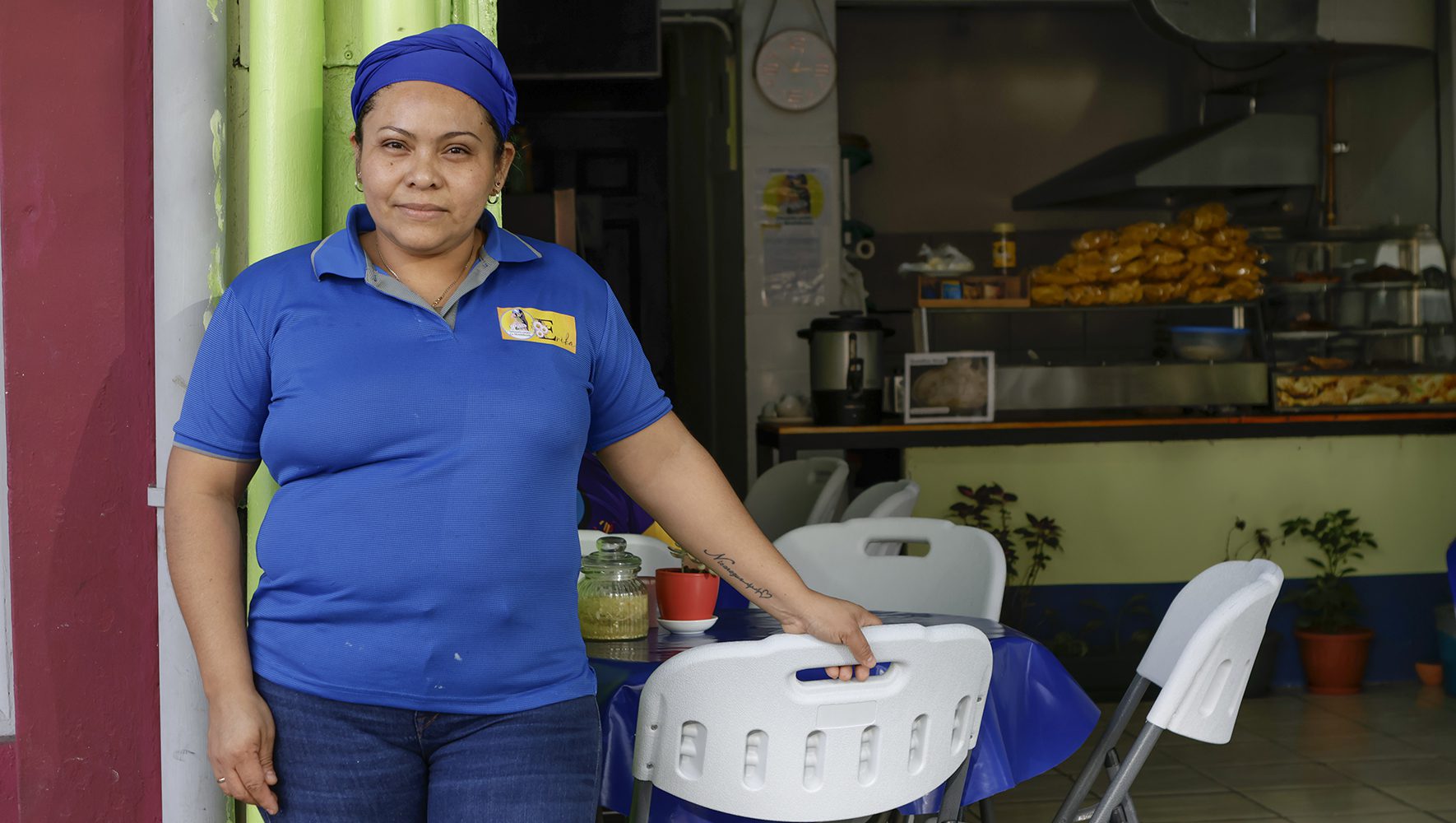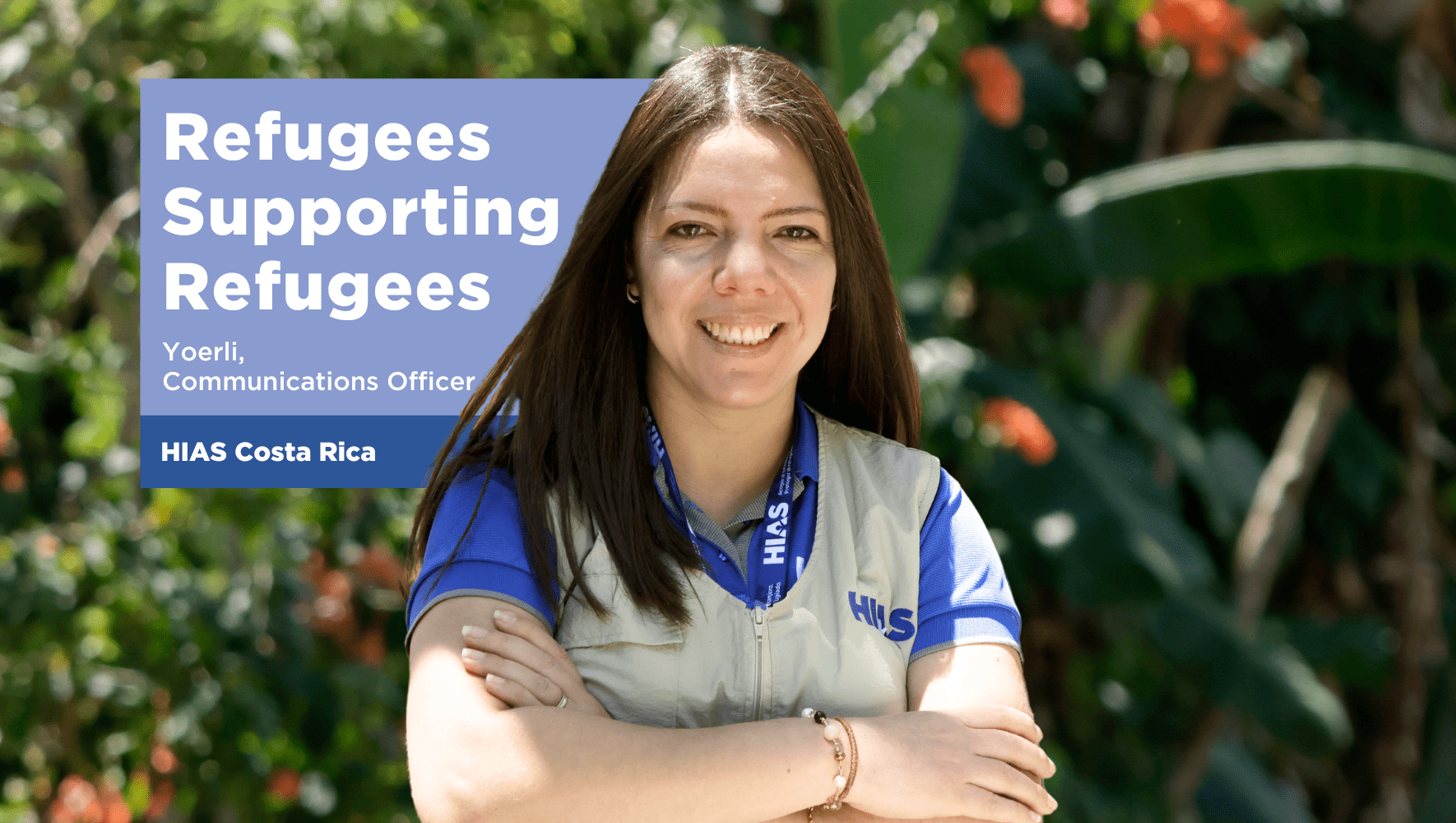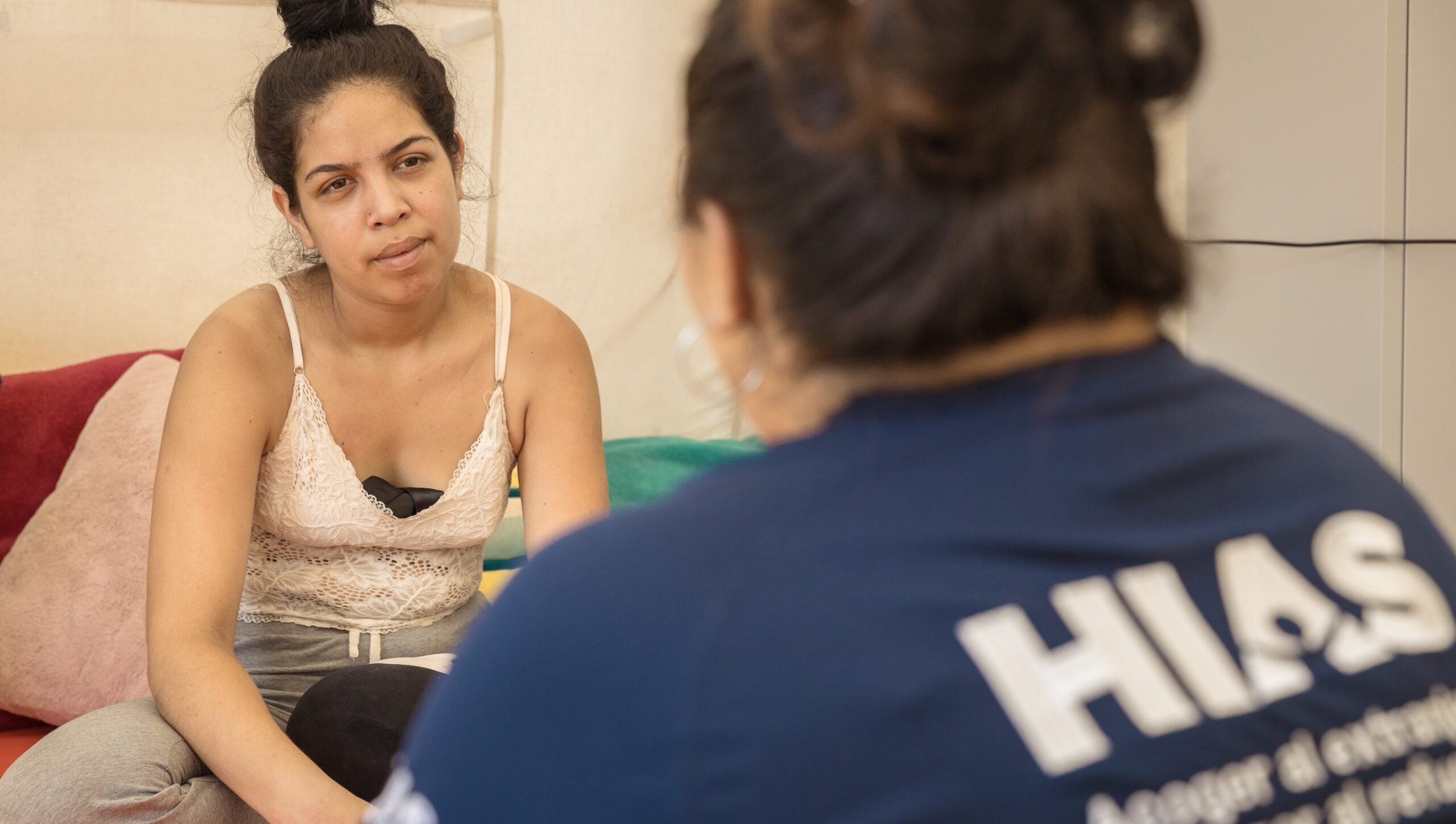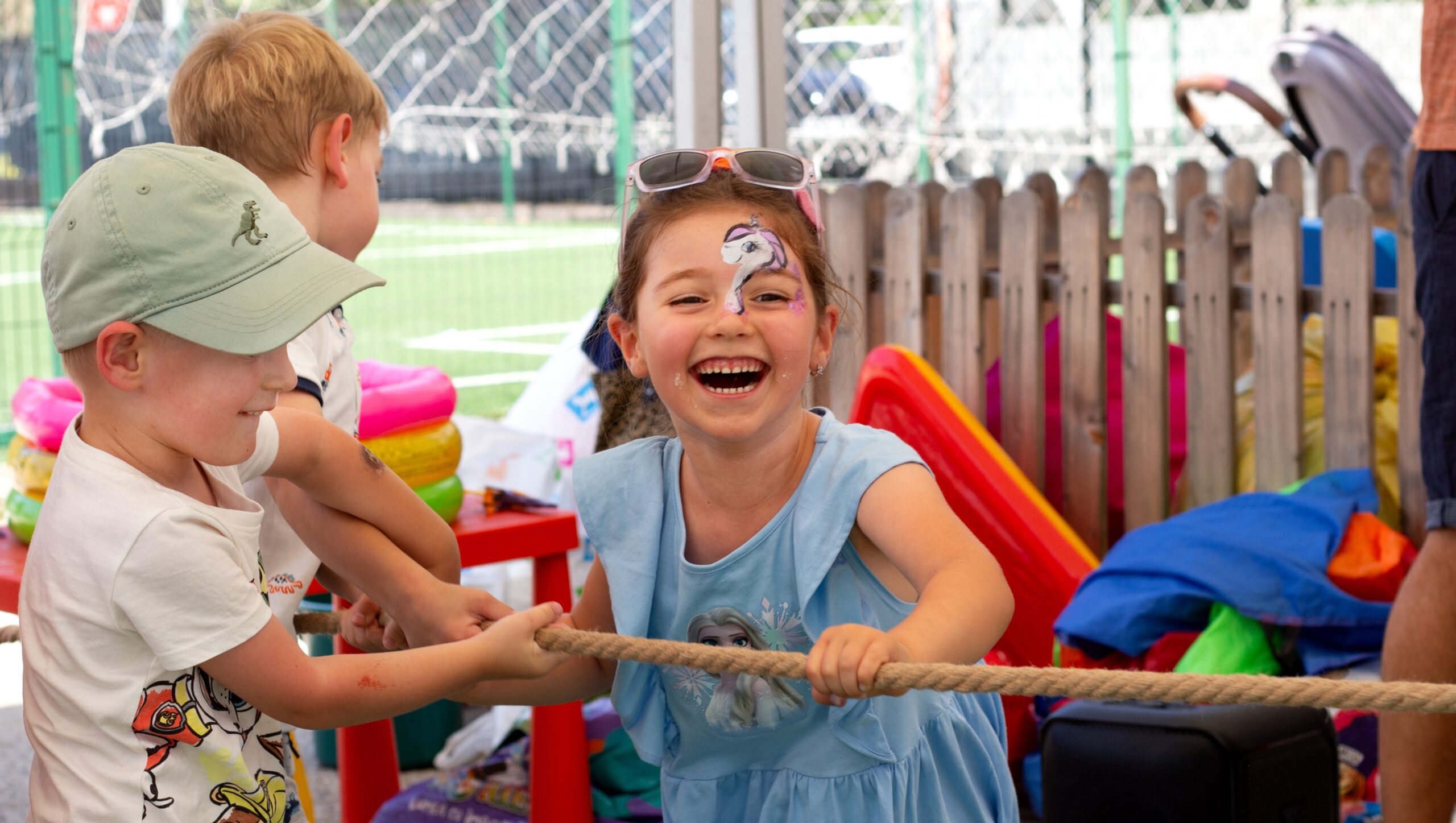
In 2018, Angela Torres* joined a protest. She then ended up in prison where she was tortured and beaten. She did not know if she would survive.
When she was finally released, she could no longer envision a safe future for herself in her home country. She knew she had to leave, and that’s when she starting making her way to the border with Costa Rica by land.
Soon after her arrival in Costa Rica, she came into contact with HIAS, whose local staff provided her with psychological counseling and helped get her residency documents in order. Torres, a 36-year-old trained nurse, worked different jobs to make ends meet but struggled to support her family.
How would she sustain herself going forward in her new home?
HIAS’ Graduation Model Approach provided a solution. The Graduation Model Approach is a hollistic program that consists of providing legal support, mental health support, nutrition guidance, entrepreneurship programs, skills training workshops, seed capital opportunities, and follow-up support.
The model is a powerful tool that allows forcibly displaced people to participate equitably in all aspects of life in their host communities and to achieve sustainable income sources.
“One of the first things we learned was the importance of eating three nutritious meals a day, and also to plan our meals in advance,” said Torres. “I also created a significant support network with the other women in the course and learned that it’s really important to have savings. Now I have a savings mentality, which I never had before.”
"The Graduation Model Approach provides refugees in Costa Rica with a sustainable and secure livelihood, savings for emergencies, improvement in their nutrition, and effective integration into their communities."Angie Solorzano, HIAS Costa Rica’s Economic Inclusion Coordinator
A total of 70% of participants in HIAS’ economic inclusion program successfully improved their self-sufficiency after taking part. Of those who created new businesses during the program, 60% of these businesses continued to generate sustainable incomes one year after program completion, and 15% of businesses generated new jobs in the community.
The Graduation Model Approach, which targets families living in extreme poverty — less than $1.25 a day in the Latin America and Caribbean region — is a fundamental element of this program.
In Costa Rica, HIAS is currently carrying out the Graduation Model Approach with 70 family groups of refugees and asylum seekers, with the support of the U.S. Bureau of Population, Refugees, and Migration (PRM) and UNHCR.
“Through support and close accompaniment for 18 to 24 months, the Graduation Model Approach provides refugee and asylum-seeking families in Costa Rica with a sustainable and secure livelihood, savings for emergencies, improvement in their nutrition, and effective integration into their communities,” says Angie Solorzano, HIAS Costa Rica’s Economic Inclusion Coordinator.
As part of the GMA, Torres also participated in HIAS’ Entrepreneurship School with a Gender Lens. It was during this time that the idea to open up her own restaurant started to come to life.
“During the course, I learned about managing finances for a business. I learned about how to keep track of monthly profits and expenses, and how to make sure I’m always putting money aside. Now, I have my own restaurant,” Torres said. At her restaurant, she serves up food from Nicaragua and Costa Rica, helping her to feel connected to her two homes at once.
"HIAS was the first place that I received emotional support in Costa Rica. They helped me to start my business, and if it wasn’t for this, I wouldn’t have my restaurant today."Angela Torres, Participant of the Graduation Model Approach and Restaurant Owner
HIAS provided Torres with legal support to get the permits she needed to open the restaurant, and also assisted her in the negotiation process with the owner of the restaurant building.
Now, she’s serving 25 lunches a day, and her typical Nicaraguan buñuelos, fried sweet cheese cakes, are flying off the shelves. “I also do a special Nicaraguan barbecue every weekend, where I serve people different types of meat with fresh corn flour tortillas,” she said. “This usually attracts a lot of customers.”
Now, Torres is close to graduating from the program after complying with the requisites in relation to the four key areas. “For people to be able to graduate from the Graduation Model Approach, they must be eating properly, saving 5% of their monthly income, sustaining their families, and have made use of support networks in their community for a period of six months,” said Marcela Aguilera, HIAS Costa Rica’s Economic Inclusion Officer.
HIAS Costa Rica expects 60% of all participants of the Graduation Model Approach to successfully graduate from the program in September when it will come to an end.
“HIAS was the first place that I received emotional support in Costa Rica. They helped me to start my business, and if it wasn’t for this, I wouldn’t have my restaurant today,” said Torres.
*Names have been changed to protect the identity of program participants.


